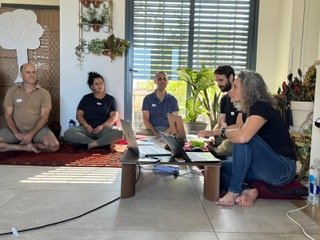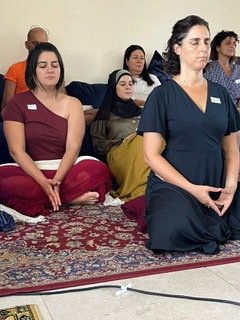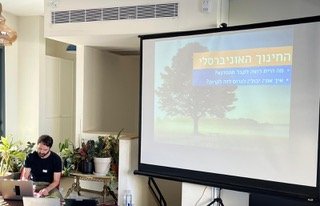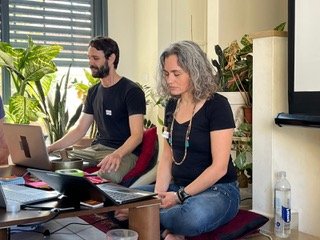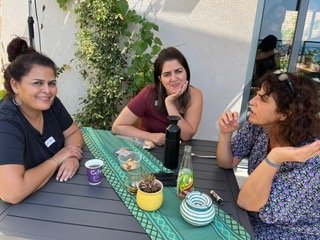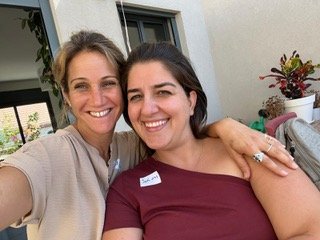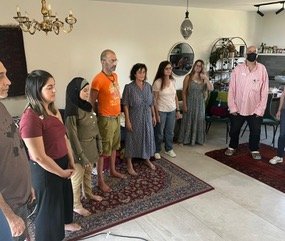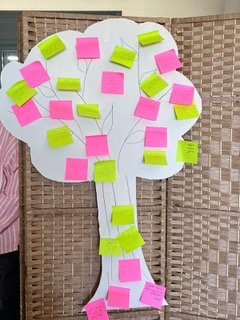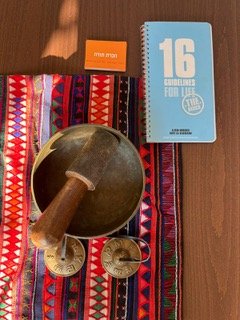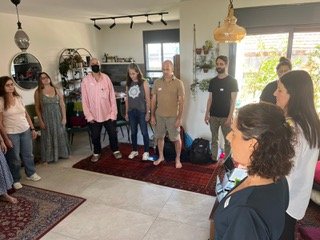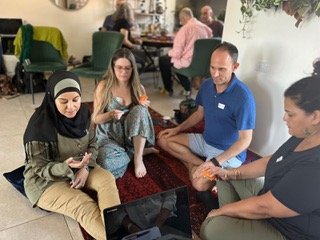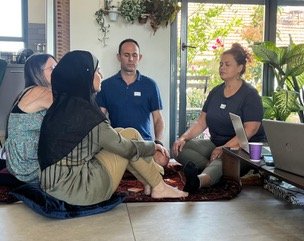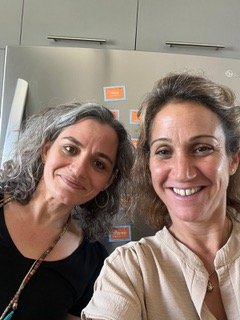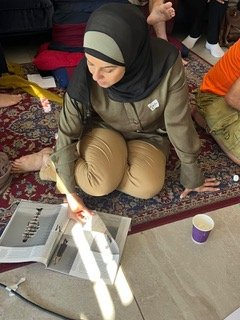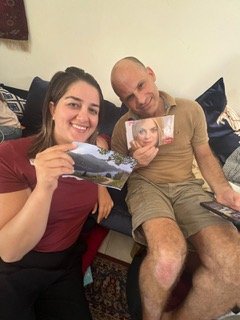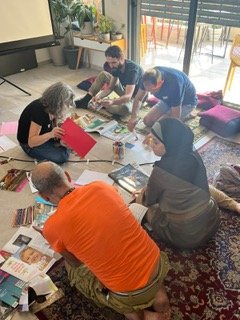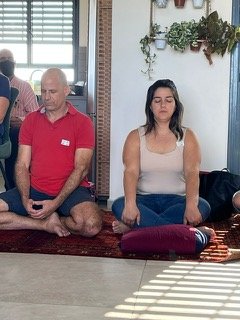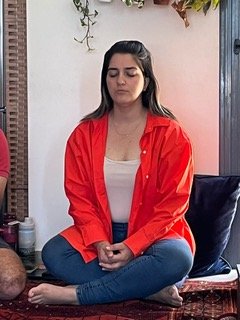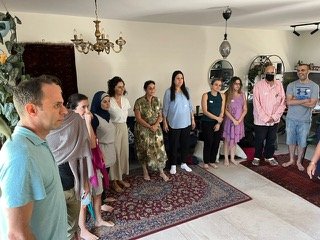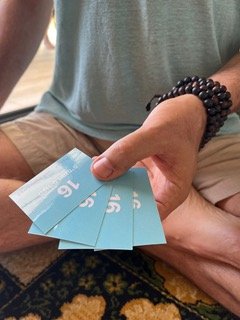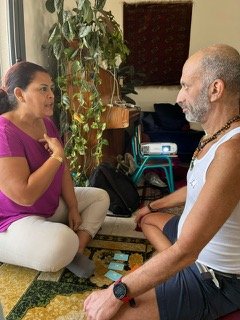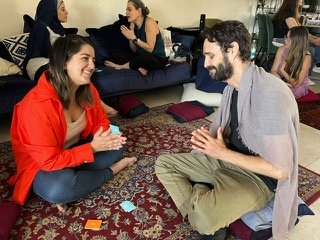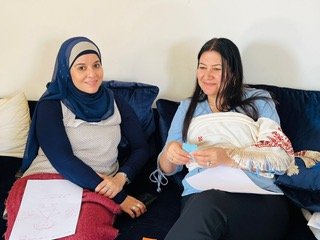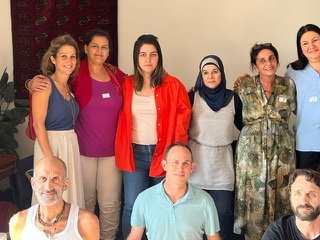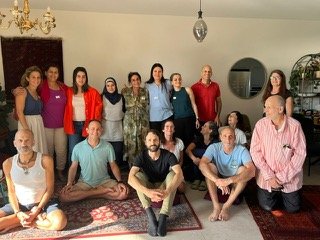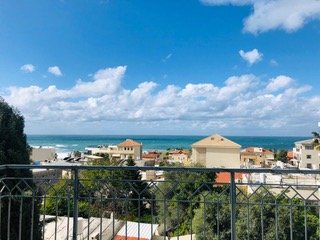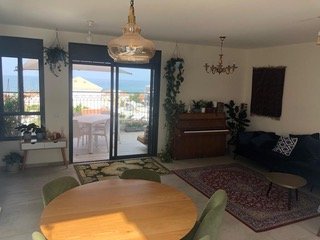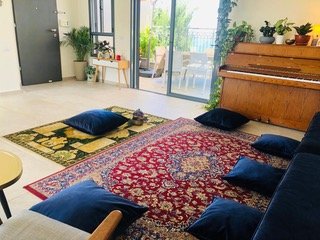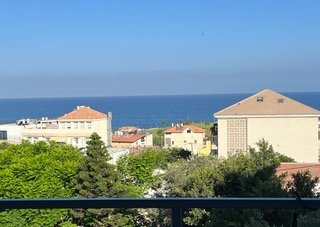The Food of Love
The Food of Love
Ofir Levit is a 16 Guidelines facilitator who founded “The Jaffa Balcony" in Israel - a place where women of different religious backgrounds can meet and connect. She describes how the Balcony came about and what she has learned during the process:
“Over the past six years, I have been guiding mindfulness and meditation workshops for groups and individuals. Three years ago, I began looking for a larger space in Jaffa to host these workshops. During my search, I discovered a special place with a beautiful sea view in the Ajami neighborhood in Jaffa. Ajami is a mixed neighborhood where Muslim, Christian, and Jewish people live. This area is known for struggling over many years with religious and cultural conflicts.
Despite (and maybe even because of) this, I felt this is the right place for me and my family to grow roots.
During my workshops, people began asking me for refreshments between meditation sessions. That need made me realize that I could create a synergetic connection with my talented neighbors: Fadia, my Christian Arabic next-door neighbour who is a chef; Lilian, my Christian Arabic neighbour who is a fantastic cook specializing in Galilee Arabic cuisine, and Alya, my Muslim Arabic neighbour who cooks the most delicious Arabic version of dolmades.
That collaboration of the four of us was and still is, the heart of the Jaffa Balcony.
Our working, cooking, and hosting together forms a unique collaboration that melted many boundaries and removed labels that had been there before.
That model of working together in mutual respect shows us every day that a simple and honest meeting between people, no matter what their religion, faith, or economic status, can lead to a profound change and transformation within us. A pair of good eyes, a smile, and a willingness to know the other person can be the seed of a true friendship.
While living and working there, I learned that Arabic people in Jaffa are reluctant to take part in Buddhist workshops. After some discussions with Arabic women, I realized there is a curiosity to learn, but that a non-religious framework is needed for such a learning to take place.
The 16 Guidelines Level 1 course we recently hosted in October at the Jaffa Balcony enabled Arabic women to join in because of the universal, non-religious presentation of the 16 Guidelines program.
The women had a safe space to explore, inquire and express themselves honestly and openly.
I am part of a non-profit called Dreamers Home that has partnered with FDCW. Our deep aspiration is to make these secular values and tools accessible not only to those who are more fortunate, but also to vulnerable populations. We developed a model called Social Magic to do exactly that. It is based on building Assistance Communities for Transformation “ACT” but in Hebrew the acronym means “Magic” and hence the name of the program!
When people learn about the tools of 16 Guidelines they have the opportunity to share these tools to others as well. One way to do this is to become a volunteer in the Assistance Communities for Transformation as a community project. In that way, the the 16G values and practices will have an infrastructure and take root in society for long term impact.
Our dream is that Jews and Arabs, Muslim and Christian, men and women, young and old, can practise, serve others and live together. In harmony. That’s the magic!”


